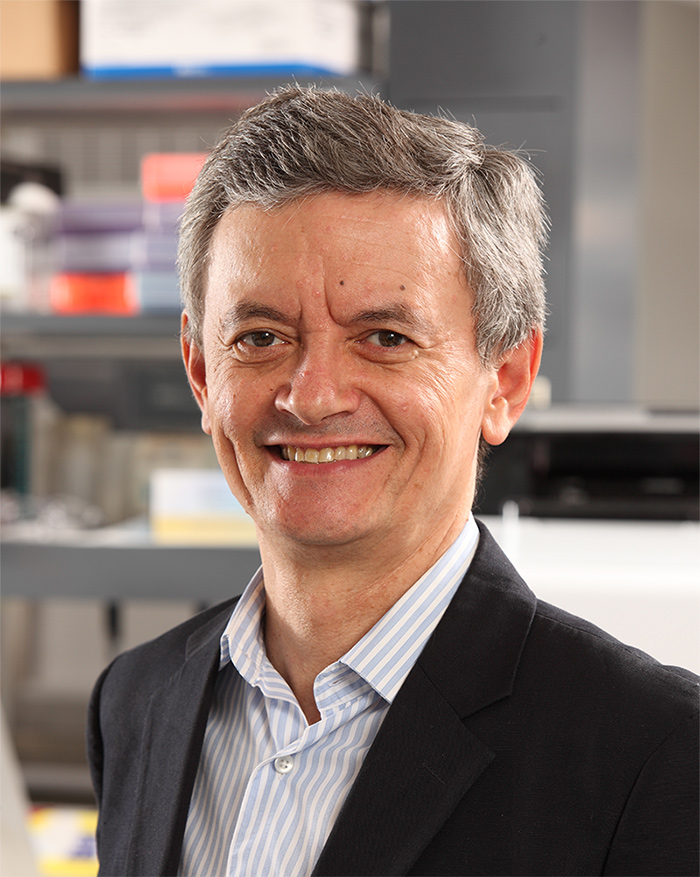
Professor John Upham
Professor John Upham has taken the baton in the TSANZ leadership relay – with a promise to move lung health forward nationally as he gives back to the Society which provided him with support during his career.
A respiratory physician at the Princess Alexandra Hospital in Brisbane and head of the Lung & Allergy Research Group at the Translational Research Institute, Professor Upham told the limbic he hoped to bring a very collaborative, consultative approach to his term.
“Amongst my many jobs, I am the chair of research for the Metro South Hospital and Health Service, so doing that for the last couple of years has given me a lot of insight into governance, leadership, and policy development which has really prepared me quite well for this role I think.”
TSANZ will also enjoy the twin energy of having both a new president and the new, recently appointed CEO Dr Graham Hall.
“I think there is a lot of potential and opportunity. Graham is the first CEO we have had that has a professional background in respiratory disease. He has been a respiratory researcher for many years so he is up to speed on lung disease, all of the research aspects of that and quite a few of the clinical aspects.”
“He has been deputy director of a research institute in Perth for many years so he has the corporate governance and leadership skills.”
Professor Upham said the COVID-19 pandemic had been a challenge for TSANZ as for all non-government organisations.
“There have been financial stresses. There have been big demands on clinical members…doctors, nurses and allied health. They have had to step up to the plate and been impacted by the COVID-19 pandemic. And we have been unable to meet face to face as we normally would.”
“That has created some challenges but also a lot of opportunities as well. The pandemic has been terrible in many ways but one thing it has done is cause us to have to interact a lot more with the Commonwealth Health Department than we have in the past.”
He said TSANZ immediate past president Professor Bruce Thompson had been in contact with the Commonwealth Health Officer on a fairly regular basis last year – both receiving and providing advice on ways to mitigate the pandemic.
“So over the course of the pandemic, from March last year, there has been a lot more contact between the Society and the department than we have seen for some time. The challenge now is to build on that relationship and see it continue.”
Professor Upham said the coming together of respiratory organisations over the last few years to form the Lung Health Alliance has also helped provide a united front to lobby government for an overarching strategy for lung diseases and to promote lung health in the community.
“The Commonwealth Health Department are increasingly enthusiastic about well developed suggestions where there is evidence that people are collaborating across a broad range of issues rather than piecemeal requests for money for this and that.”
“So we haven’t landed that yet but I am hopeful that in the next few years we will see a substantial contribution, probably from the MRFF, to fund lung disease from cradle to grave essentially.”
While Professor Upham’s clinical and research interests are in asthma, he will necessarily champion and advocate for the full gamut of respiratory health.
“I think one of the things that I am really keen to develop further is a focus on clean air and promotion of lung health. That extends all the way from continuing efforts to reduce tobacco exposure across the community…and the big debate going on at the moment around electronic cigarettes and how readily they should be available to people.”
He said it also includes occupational exposures including the tragic dust-related lung diseases of silicosis seen in artificial stone manufacturing and the unexpected outbreaks of coal workers’ pneumoconiosis in the mining industry.
“And finally air pollution standards – realising that if you want good long term health outcomes then you really need to be continuing efforts to clean up the air particularly in our cities. And that kind of links into initiatives around climate change, reducing carbon pollution, etc.”
“I’m hoping that will be a continuing and growing focus of the Thoracic Society in the years ahead. Not every member is a medical doctor. We have nurses, epidemiologists, people working in allied health, scientists ….and we have developed a lot of expertise around policy development and lobbying governments over and above what the individual might deliver on their own.”